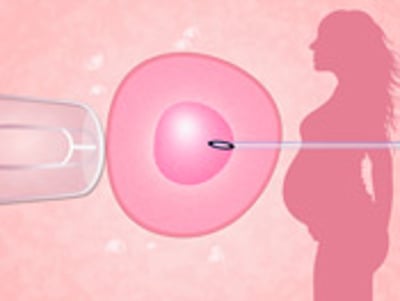Breast Cancer



Relevance: High
Most relevant for: People diagnosed with metastatic breast cancer
Article: Huffington Post article brings attention to metastatic breast cancer
Barbara Jacoby's Huffington Post piece, "How do breast cancer and metastatic breast cancer differ?" emphasizes the need for more treatment options for patients with advanced breast cancer.
READ MORE ›


Relevance: Medium-High
Most relevant for: People who tested positive for one of the rare variants in CHEK2, ATM or PALB2 that are covered in this study
Study: Rare mutations in PALB2, CHEK2, and ATM: how much do they increase cancer risk?
As multi-gene panel tests become more common, people are discovering they have mutations in genes that are not understood as well as BRCA. This can make it difficult to give patients accurate assessments of their cancer risk. For example, mutations in PALB2, CHEK2, and ATM are rare, but some specific changes in these genes are even less common. The goal of this international collaboration was to better understand the cancer risks of some very rare PALB2, CHEK2, and ATM mutations. The findings are relevant only to the specific mutations covered in this paper and do not apply to all people with mutations in PALB2, CHEK2, or ATM. (9/27/16)
READ MORE ›


Relevance: Medium
Most relevant for: People diagnosed with advanced cancer
Article: A cancer patient’s tumor is genetically profiled—how does that info help treatment?
Jessica Wapner's Scientific American article explores the difficulties of making the vast amount of information acquired from tumor gene tests useful to patients and physicians. (9/20/16). Update: THIS INFORMATION HAS BEEN UPDATED. In late 2017, the FDA approved two separate tumor profiling tests to help guide treatment choices. The FoundationOne CDx (F1CDx) genomic test has been approved to test for 15 different targeted therapies used to treat five types of cancer, including ovarian, colorectal, lung, breast and melanoma. The FDA also approved the MSK-IMPACT and developed for use by Memorial Sloan Kettering Cancer Center (MSKCC) to scan tumor samples for 468 different cancer-associated mutations or alterations.
READ MORE ›


Relevance: Medium-Low
Most relevant for:
Personal Story: Dogs: Companions, hunters, and cancer detectors?
In August 2016, many news outlets published stories about how actress Shannen Doherty’s dog was able to sniff out her cancer before she was diagnosed. Is there scientific validity to that claim? (9/16)
READ MORE ›


Relevance: High
Most relevant for:
Study: How beneficial is online communication after a new diagnosis of breast cancer?
Newly diagnosed breast cancer patients often use online communication to find more information about their diagnoses and treatment options. But does online communication benefit these patients' decision-making process? (8/30/16)
READ MORE ›


Relevance: Medium
Most relevant for: Woman at average risk for breast cancer who have or are considering undergoing In Vitro Fertilization
Study: Does IVF increase a woman’s risk for breast cancer?
In vitro fertilization (IVF) wasn't commonly used until the 1980s, so its long-term effects are mostly unknown. A new study suggests that the treatment does not increase a woman's risk for developing breast cancer. (8/23/16)
READ MORE ›


Relevance: Medium-High
Most relevant for: Breast cancer survivors and people in treatment who are experiencing fatigue
Study: Can acupressure be used to treat cancer-related fatigue?
Breast cancer survivors commonly report experiencing considerable fatigue, which can lead to sleep problems and poor quality of life. Yet, there are no good therapies for these patients. This research study looks at whether self-administered acupressure can help breast cancer survivors with their fatigue. (8/9/16)
READ MORE ›


Relevance: Medium-High
Most relevant for: People diagnosed with early stage breast cancer
Study: Is there a link between exercise and memory in breast cancer survivors?
Exercise has many health benefits, but can it also help improve memory for breast cancer survivors? This research finds that breast cancer survivors who exercised more had less fatigue and distress (anxiety, depression, stress, and/or concern about recurrence) and scored better on memory tests. (8/2/16)
READ MORE ›


Relevance: Medium-High
Most relevant for:
Study: Extending aromatase inhibitor duration to 10 years lowers recurrence for ER/PR+ breast cancer patients
Hormonal therapy reduces the risk of recurrence for women with early-stage breast cancer that is ER-and/or PR-positive. Standard therapy lasts 5 years. A new study looks at whether extending one type of hormonal therapy, known as aromatase inhibitor therapy, to 10 years lowers recurrence rates even more for these women. (7/26/16)
READ MORE ›


Relevance: Medium-High
Most relevant for: African American women who have been diagnosed with breast cancer
Study: Racial disparities in BRCA testing: Why?
Black women receive BRCA testing less frequently than white women. Why is that? Researchers thought the reason might be that black and white women see different health care providers. However, new research suggests that disparities in physician recommendations for testing are the cause: black women with breast cancer were less likely to receive physician recommendations for BRCA testing than white women with breast cancer. There is a need to ensure equity in physician testing recommendations for black women. (7/21/16)
READ MORE ›